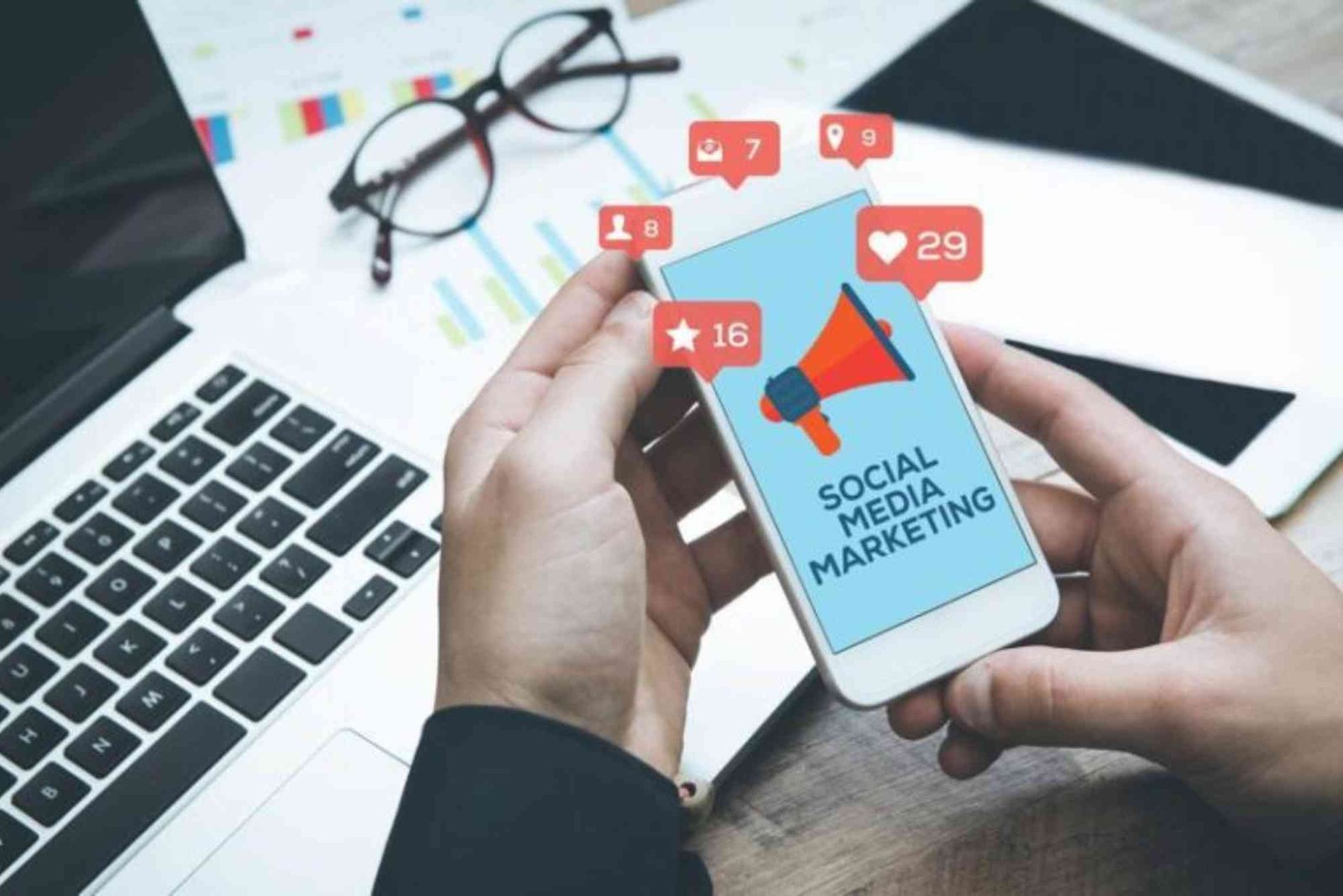How What Do You Know About Digital Marketing Works — Everything You Need To Know
In today’s hyper-connected world, digital marketing drives how brands attract, engage, and convert audiences online. Whether you’re a beginner or an experienced marketer, understanding How What Do You Know About Digital Marketing Works — Everything You Need To Know can help you navigate the ever-evolving landscape of online marketing.
Digital marketing isn’t just about ads or social media posts — it’s a complete ecosystem that connects businesses to consumers through multiple digital channels. Let’s dive into how it all works, why it matters, and how you can use it to grow your brand effectively in 2025 and beyond.
What Is Digital Marketing and Why It Matters
Digital marketing refers to promoting products, services, or brands using online channels such as search engines, social media, email, and websites. Unlike traditional marketing, it allows for precise targeting, measurable results, and real-time engagement with potential customers.
Understanding How What Do You Know About Digital Marketing Works — Everything You Need To Know helps you realize how brands can create stronger connections with audiences. Digital marketing allows even small businesses to compete globally using smart, data-driven strategies.
How Digital Marketing Works
At its core, digital marketing uses digital technologies to reach people at the right time and place. It combines multiple strategies and channels to create a unified brand experience.
Search Engine Optimization (SEO)
SEO involves optimizing your website to rank higher on search engines like Google. It includes keyword research, content creation, link building, and technical improvements. A well-optimized website attracts organic traffic and boosts credibility.
To get started, explore resources such as learn about what do you know about digital marketing for insights into foundational SEO techniques.
Content Marketing
Content marketing focuses on creating valuable, relevant content to attract and retain a target audience. This includes blogs, videos, infographics, and podcasts. Quality content educates users, solves problems, and positions your brand as an authority.
Social Media Marketing
Social platforms like Instagram, Facebook, LinkedIn, and TikTok are powerful for brand awareness. Through organic posts and paid ads, businesses engage with users, build trust, and drive conversions.
Pay-Per-Click (PPC) Advertising
PPC campaigns allow businesses to display ads on platforms like Google Ads or Bing Ads. You only pay when someone clicks on your ad. It’s an excellent way to reach people who are already searching for your products or services.
For data-backed strategies, explore insights on marketing & advertising insights.
Email Marketing
Email remains one of the most effective digital marketing tools. It enables personalized communication, nurturing leads, and converting potential buyers into loyal customers.
Influencer Marketing
Collaborating with influencers helps brands tap into existing audiences who trust those voices. Influencer partnerships can increase credibility and drive engagement.
Affiliate Marketing
This involves partnering with affiliates who promote your products for a commission. It’s a performance-based model that rewards results, not just exposure.
Video Marketing
Video is one of the most engaging forms of content online. Platforms like YouTube, TikTok, and Instagram Reels allow brands to connect visually and emotionally with viewers.
Analytics and Data Tracking
Digital marketing thrives on data. Tools like Google Analytics, SEMrush, and HubSpot help marketers measure performance, track ROI, and refine campaigns. You can also visit Think with Google for research-based insights and data trends.
Key Components of a Digital Marketing Strategy
Understanding Your Audience
Before launching campaigns, you must identify your audience’s needs, preferences, and online behaviors. Knowing who you’re speaking to helps you craft the right message for the right platform.
Setting SMART Goals
Specific, Measurable, Achievable, Relevant, and Time-bound goals guide your marketing activities. For instance, “Increase website traffic by 25% in three months through SEO” is a SMART goal.
Choosing the Right Channels
Every platform serves a different purpose. While Instagram may work for lifestyle brands, LinkedIn suits B2B companies. Choose channels based on your audience and objectives.
Budget Planning
Allocate your budget wisely across channels like SEO, PPC, and content creation. Regularly review performance metrics to reallocate funds for maximum ROI.
Content Calendar
Consistency is key in digital marketing. A content calendar helps plan and organize posts, blogs, and campaigns for better execution and engagement.
The Role of AI and Automation in Digital Marketing
Artificial Intelligence (AI) and automation have revolutionized how marketers operate. They streamline processes, personalize content, and predict consumer behavior.
AI in Content Creation
AI tools assist in writing optimized blogs, social captions, and emails. However, human creativity remains essential for authenticity and emotional connection.
Marketing Automation
Automation platforms handle repetitive tasks like scheduling posts or sending follow-up emails. This saves time and ensures consistency across campaigns.
Predictive Analytics
Using AI for predictive analytics helps marketers forecast trends and optimize campaigns based on consumer data and behavioral patterns.
Benefits of Understanding How Digital Marketing Works
Learning How What Do You Know About Digital Marketing Works — Everything You Need To Know gives individuals and businesses a competitive edge. Here’s why:
-
Cost-Effective: Digital campaigns are more affordable than traditional media.
-
Measurable Results: Analytics tools offer real-time performance insights.
-
Targeted Reach: Ads can be customized to reach specific audiences.
-
Enhanced Engagement: Two-way communication builds stronger relationships.
-
Brand Visibility: Consistent digital presence increases recognition and trust.
Common Challenges in Digital Marketing
Despite its advantages, digital marketing also presents challenges.
Rapid Algorithm Changes
Platforms like Google and Facebook frequently update algorithms. Staying informed is crucial to maintaining visibility.
Content Saturation
The internet is crowded with content. Marketers must produce unique, valuable material to stand out.
Data Privacy Concerns
With stricter data laws (like GDPR), brands must handle user data responsibly. Transparency builds trust.
Skill Gaps
Digital marketing tools evolve quickly. Continuous learning ensures you stay ahead in this dynamic field.
Future of Digital Marketing in 2025 and Beyond
The digital marketing landscape continues to evolve, blending creativity with technology.
Rise of Voice Search
Voice-activated devices like Alexa and Siri are shaping new SEO trends. Marketers must optimize for conversational keywords.
Personalization at Scale
AI allows hyper-personalized experiences — tailoring messages based on user behavior, location, and interests.
Sustainability and Ethics
Consumers prefer brands that align with ethical and sustainable values. Transparent marketing will become a defining trend.
Immersive Experiences
Augmented Reality (AR) and Virtual Reality (VR) are transforming how consumers interact with brands online.
For more expert guidance, visit resources like marketing & advertising insights to stay updated.
FAQs About Digital Marketing
What are the main types of digital marketing?
The main types include SEO, content marketing, social media, email, PPC, affiliate, influencer, and video marketing.
How long does it take to see results from digital marketing?
Typically, it takes three to six months for consistent results. SEO may take longer, while PPC delivers faster visibility.
Is digital marketing suitable for small businesses?
Absolutely. It offers affordable ways to reach targeted audiences and compete with larger brands.
What is the best platform for digital marketing?
The best platform depends on your audience. For B2B, LinkedIn works well; for B2C, Instagram or Facebook may be better.
How can I learn more about digital marketing?
Explore beginner-friendly guides like learn about what do you know about digital marketing for step-by-step learning resources.
Take the Next Step in Digital Marketing
Understanding How What Do You Know About Digital Marketing Works — Everything You Need To Know empowers you to make smarter marketing decisions. With the right strategies, tools, and continuous learning, you can grow your online presence, engage your audience, and achieve measurable results.
Whether you’re managing a small business or building a personal brand, now is the perfect time to dive deeper. Explore Think with Google for expert data, and check out marketing & advertising insights to stay updated with the latest industry trends.
Start mastering digital marketing today — build strategies that attract, engage, and convert your audience. Visit learn about what do you know about digital marketing and begin your journey toward online success.








